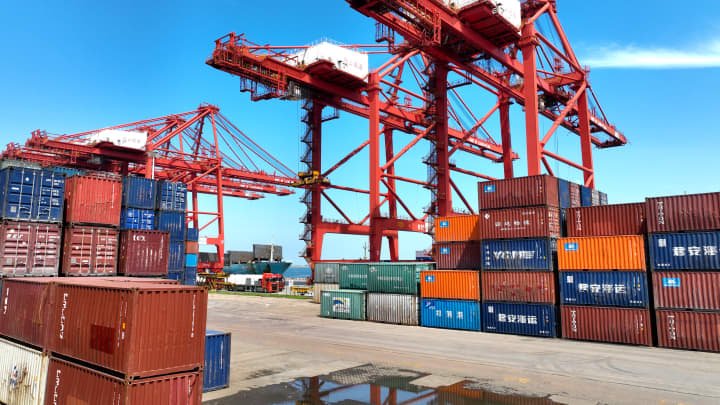Imports Skyrocket by 269%, Exports See Downturn
The National Bureau of Statistics (NBS) released its ‘Foreign Trade in Goods Statistics’ report for the fourth quarter of 2023 (Q4’23), revealing a significant surge in the value of manufactured goods imported into Nigeria. The data showed a staggering year-on-year (YoY) increase of 268.76 percent, soaring from N2.45 trillion in Q4 2022 to N9.03 trillion in Q4 2023. This figure also marked a notable 128.12 percent rise from the N3.96 trillion recorded in the third quarter of 2023 (Q3’23).
Manufactured goods constituted the bulk of imports during this period, accounting for 64 percent of the total imports valued at N14.11 trillion. However, the report highlighted a contrasting trend in manufactured goods exports, which witnessed a YoY decline of 24.45 percent, dropping from N311.01 billion in Q4 2022 to N234.96 billion in Q4 2023.
The report delved into specific categories of manufactured goods imported during the period. Tanks and motorized armored fighting vehicles were the top imported goods, primarily sourced from Singapore and valued at N5.061 trillion. Additionally, used vehicles with diesel or semidiesel engines, mainly imported from the United States and Italy, were valued at N94.27 billion and N6.69 billion, respectively. Other notable imports included parts of other gas turbines from the United States and Germany, valued at N1.14 billion and N1.12 billion, respectively, along with machines for reception, conversion, and transmission of voice, images, or data, valued at N6.46 billion, imported from China.
The report suggested that the surge in imported manufactured goods could be partly attributed to multinational companies shifting to imports following challenges such as foreign exchange volatility, naira devaluation, and energy crises. These factors likely influenced companies that previously operated manufacturing facilities in Nigeria to import finished goods instead.
The data underscores the importance of addressing structural and policy challenges to promote local production and reduce dependency on imported goods, fostering economic resilience and sustainability.



















